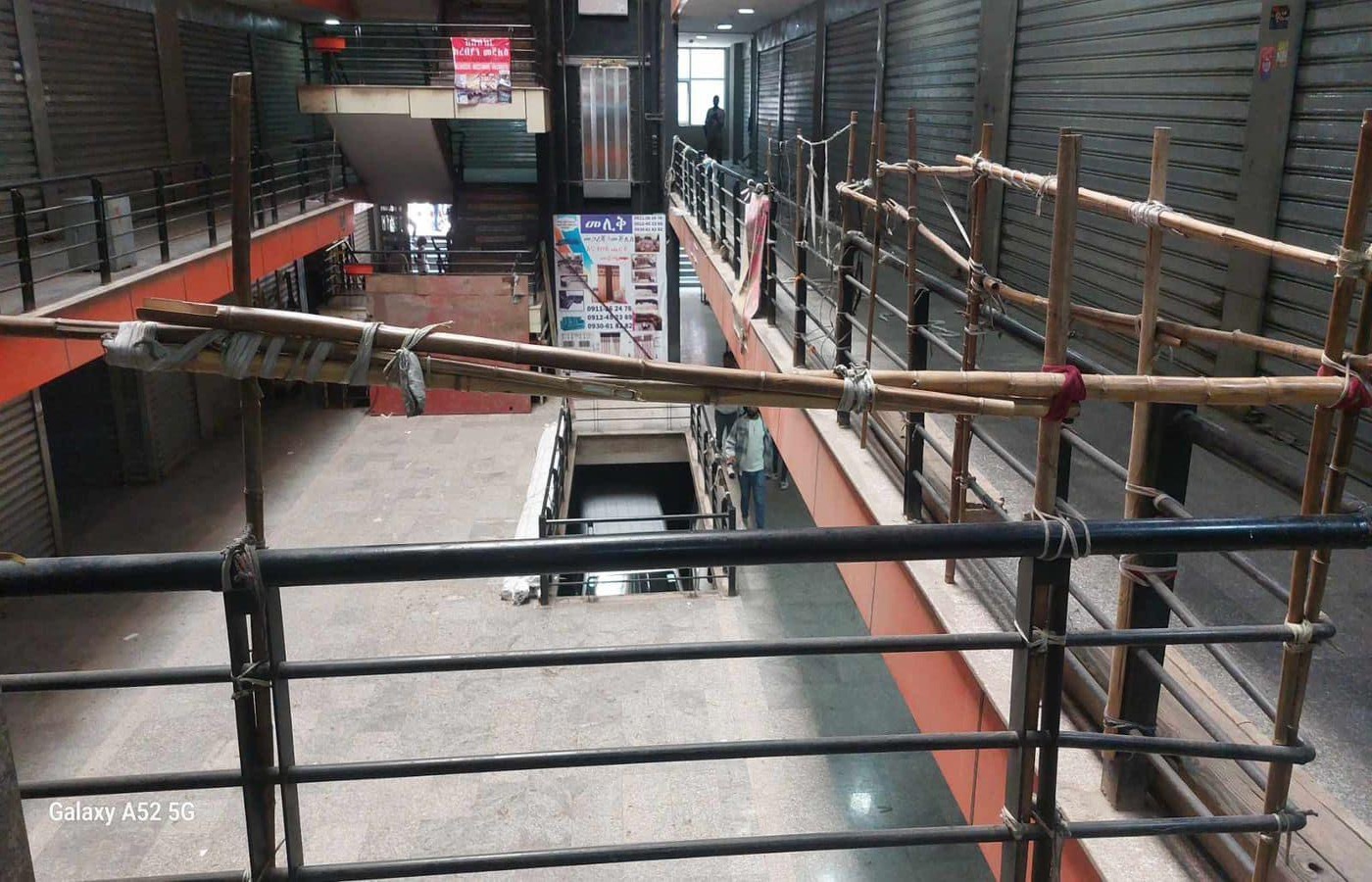Ethiopia has undertaken a major reform by shifting to a flexible exchange rate system and liberalizing its foreign exchange regime for the first time. On the first day, commercial banks drove the value of the birr down by 30% against the dollar, and volatility continued in subsequent weeks as traders tested the new floated system. This long-requested change by the IMF and World Bank aims to establish a realistic exchange rate and attract foreign investment, but it also brings substantial risks like rising inflation from more expensive imports. Traders expressed uncertainty on the market's first day, and experts warn of challenges maintaining stability with low reserves and managing mounting debts now subject to exchange rate fluctuations. As the government works to support vulnerable groups and finalize debt restructuring negotiations, successful navigation of short-term difficulties will be key to unlocking Ethiopia's economic potential through the transition, but political opposition remains skeptical and instability could threaten reform implementation. BirrMetrics takes an in-depth look at what prompted this change, the initial reaction in currency markets, and what challenges lie ahead.
An unusual silence hung over Addis Ababa's sprawling Merkato market on Monday morning. Traders stood watching customers warily as they perused prices, yet few openly displayed their goods for sale. With Ethiopia floating its currency after decades of strict controls, no one knew what to expect.
"Business feels paralyzed today," said Kirubel Taffese, a cloth wholesaler who normally buzzed with customers. "We don't understand the impact yet so are limiting sales until we see which way prices move." Others like Abdi Ali, a kiosk owner, ventured into the market hoping to replenish stocks, yet found suppliers hesitant. "They're holding back until the dust settles," he explained. Even basic necessities seemed subject to uncertainty on the day Ethiopia's new foreign exchange regime came into effect.
The uncharacteristically muted atmosphere underscored the momentous economic policy shift undertaken by the government. For the first time, Ethiopia's banks set exchange rates freely rather than as directed by the central bank. Immediate effects were soon felt across the city. But in Merkato, traders' initial caution revealed underlying anxieties as they grappled with an unfamiliar floating system...
In a major policy shift, Ethiopia has adopted a flexible exchange rate system and liberalized its foreign exchange regime. For the first time, the value of the birr will be determined by market forces rather than set by the central bank. This decision represents one of the most significant economic reforms undertaken by the government in recent years. But it also comes with risks that could impact both businesses and ordinary citizens.
The decision to move to a floating exchange rate system is the culmination of years of pressure from international lenders like the IMF and World Bank to liberalize Ethiopia's economy. Strict capital controls and foreign exchange restrictions had long been blamed for creating distortions and preventing the private sector from flourishing. With limited access to dollars and euros, importers struggled while exporters had little incentive to expand. The system also made it difficult for the central bank to manage inflation and stabilize the economy.
Reserves had also come under pressure due to a large trade deficit, which saw billions of dollars going out to pay for imports annually while limited foreign exchange came in through exports and remittances. This was especially problematic given large debt repayments looming and pressure building on the currency from speculators anticipating a devaluation. As reserves dwindled, so did the central bank's ability to defend the birr's peg against other currencies. Calls grew louder for reform.
"The system was unsustainable and had to change," says economist. "Keeping tight currency controls while running chronic trade deficits was undermining confidence in the birr. Liberalizing was inevitable to establish a realistic exchange rate and attract more foreign capital inflows needed for development."
The government had resisted for years but external pressures, including conditioned financing, had become hard to resist.
But politicians are still sounding cautions.
Abraham Haimanot raised strong objections to the ruling Prosperity Party's reforms. As senior leader of EPRP, he contended voters felt betrayed by rising costs sure to diminish living standards. "This government prioritizes debt payments over citizens' welfare. They've lost all legitimacy," Haimanot declared.
Mubarek Rashid of Freedom and Equality Party echoed warnings of hardships, pointing to Ethiopia's agrarian base heavily reliant on affordable basics. "Devaluing the birr now risks unrest as farmers lose purchasing power. Inflation didn't emerge overnight, so solutions can't be rushed either."
The political analyst Getachew Temare delved deeper into political risks, noting inflation historically galvanized protests. With tensions still raw from the Tigray war, even moderate price hikes could catalyze opposition. "Regional divisions remain unaddressed, yet officials impose nation-scale changes without consensus. This heavy-handed approach won't end well," he advised.
Getachew noted "public confidence in officials is waning as hardships compound. If inflation unites protests, unrest could spread given fragmented opposition." He criticized the lack of support for vulnerable communities.
Reaction in Markets
When the new system went live on Monday, it caused an immediate shock in currency markets. In the first day alone, commercial banks bidding for dollars drove the birr's value down by around 30 percent against the greenback. The dollar buying rate at the Commercial Bank of Ethiopia, the largest lender, jumped from 57.4 birr on Saturday to 74.7 birr on Monday. It then increased to 78 birr on Wednesday.
Subsequent weeks will see further volatile fluctuations as traders continue testing the flexibility of the newly floated system. The steep initial declines, economists say, reflect pent-up pressures from built-up imbalances that had been suppressed under tight controls for years. But continued instability raises worries.
"The birr's sharp depreciation has unsettled many and damaged confidence," notes an informal currency trader. "While a market-set exchange rate was overdue, the lack of buffers has amplified downside risks. Businesses and households with foreign exchange needs or debts are feeling a sudden squeeze." There are worries speculation could continue driving gyrations, hurting stability. The central bank's ability to influence swings may now be limited.
For Ethiopia's export sector, the reforms offer both opportunities and challenges. On the positive side, a cheaper currency makes exports more competitive internationally and could boost volumes over time. It also incentivizes production for external markets by giving companies access to a greater share of their forex sales.
Coffee exporter Erkyihun Sinateyhu says he's optimistic sales may rise: "With the birr devalued, our coffee will be cheaper and hopefully more attractive to buyers. This adjustment was necessary to increase our exports, even if it means some short-term difficulties for other businesses."
However, volatility also heightens risks for exporters who have to bear exchange rate fluctuations. Prices negotiated months in advance may not match currency levels at the time of payment. There are also concerns domestic inflation fueled by a weaker birr could eat into export competitiveness gains over the long-run if not well managed. Significant adjustments may still lie ahead.
"Exporting has become more challenging to plan for," notes a textiles producer. "Margins could contract due to unstable exchange rates. And higher import costs will squeeze profits until we adapt. This transition will test Ethiopia's competitiveness at a difficult time."
By far, the biggest domestic threat from the reforms is rising inflation. As the birr weakens, the costs of imported goods from fuel to food and industrial inputs are jumping. Costs of consumer goods are also being driven up. With inflation already in double digits, a weaker currency threatens to send price rises spiraling further.
"My suppliers have already increased prices of grain, edible oil and other consumable items due to a fear that prices would increase because of depreciation of the birr" says shop owner Abdi. "Everything is becoming more expensive. If this continues, I'll be forced to raise prices too, which customers will find hard to afford." Inflation disproportionately impacts low-income groups with little ability to navigate increasing costs of living.
Binyam Belete, a metal supplier, reported rebar costs rose 15 birr immediately. Concerns revolve around unstable periods ahead. “I expect more price increases if the value of the birr continues to dwindle against the dollar,” he warned, adding however that the initial price change has been stable considering what he had feared.
Many importers are also facing difficulties due to Ethiopia's shift to a floating exchange rate. Previously, the birr was pegged at around 55 to the dollar. But since moving to a flexible system, it has depreciated significantly to over 75 birr per dollar.
Importers who had arranged letters of credit weeks ago based on the old rate are now seeing their dollar costs rise substantially. One medical equipment importer reported their bank is demanding an extra tens of thousands of birr to account for the new higher exchange rate.
With tight profit margins, coming up with additional funds at short notice is difficult. Some importers may be forced to cancel orders, potentially leading to supply delays or shortages for industries like healthcare that rely on continuous shipments.
Experts’ View
Abdulmenan Mohammed, an independent financial analyst based in London, expressed cautious reservations about Ethiopia's new floating exchange rate system.
He elaborated on his primary concern about the Central Bank's ability to smooth currency volatility. As an expert following Ethiopia's macroeconomic situation closely, he noted: "Foreign reserves are low after defending the pegged rate for so long. Interventions to stabilize fluctuations may prove challenging without more buffers."
On inflation risks, the expert warned that import bills would likely rise with depreciation, risking higher prices. As an independent analyst, Abdulmenan is wary of claims that subsidies alone can effectively target relief.
He also raised his concern on how public and private debts that now carry exchange rate risk can be managed. Over 60 percent of government debt is foreign-currency denominated, leaving it exposed to swings. Payments on multibillion-dollar eurobonds and loans from China pose serious vulnerabilities.
Abdulmenan also pointed to balance sheet issues for domestic institutions with short-term foreign obligations. "Many debts were incurred at different exchange rates. Rapid swings could severely strain companies and banks without coordinated restructuring," Abdulmenan commented.
Sam Rosmarin, a business strategist based in Addis Ababa, struck a more optimistic tone on Ethiopia's monetary reform compared to other experts. He said the move to a flexible exchange rate system "marks the start of a new era for Ethiopian monetary policy." While acknowledging short-term adjustments, he framed criticisms as missing the bigger picture.
"There is too much focus on potential economic pains without recognizing problems already plaguing the economy," Sam remarked. "Inflation has been high for years, investment and exports are inadequate, and debt repayments loom. Doing nothing risks greater disruption down the line."
The strategist welcomed reforms aimed at addressing root causes like bureaucratic inefficiencies stifling competitiveness. "Streamlining customs and incentivizing private sector flows of goods and capital are essential to resolve macro imbalances," he advised.
On criticisms of unavoidable hardship, Sam countered: "No measure is perfectly targeted or painless. But the National Bank's fertilizer subsidies should ease costs for farmers and ease food security risks, as one example of mitigation."
Alula Nerea, an economist, noted that Ethiopia's exports are mainly low value-added primary goods, limiting potential competitiveness gains from devaluation alone. "We can't benefit a lot from currency flexibility given our exports' profile in terms of value and volume," he said.
However, Alula acknowledged the policy could encourage local consumption through import substitution, providing opportunities for Ethiopia's small and medium enterprises (SMEs). "But this depends on SMEs surviving greater international competition now entering the domestic market following the recent liberalization of the trade and export sector in Ethiopia," he cautioned.
International Support
Multilateral partners have signaled strong backing for the exchange rate reform undertaken by Ethiopia. For years, the issue of adopting a flexible exchange rate regime was a sticking point that prevented Ethiopia from accessing the full extent of loans from the World Bank and IMF.
By shifting to a market-determined birr, Ethiopia addressed a core concern of these institutions. Just days after floating the birr, the World Bank approved a $1.5 billion program providing both grants and concessional finance.
Meanwhile, the IMF's governing board signed off on a $3.4 billion extended credit facility arrangement, immediately disbursing around $1 billion to supplement reserves. Both packages aim to support transitioning to a market-driven system and shoring up financial stability.
"This is a landmark moment for Ethiopia," said IMF Managing Director Kristalina Georgieva. "The approval of the ECF demonstrates Ethiopia’s strong commitment to transformative reforms. The IMF looks forward to supporting these efforts to help make the economy more vibrant, stable, and inclusive for all Ethiopians."
The World Bank highlighted how reforms supported by its new $16.6 billion financing program over three years would help increase private sector orientation by addressing macroeconomic imbalances and expanding trading opportunities.
"Successful implementation can help Ethiopia reach its full potential so more citizens can thrive," said World Bank Country Director Maryam Salim. "There is strong emphasis on protecting vulnerable communities from economic adjustment costs and expanding opportunities."
However, some opposition figures remain skeptical of international backing, seeing undue pressure on policy decisions for political rather than economic reasons - a criticism the government has consistently rejected. The government asserts reforms were undertaken autonomously based on domestic imperatives.
Going forward, Ethiopia faces significant challenges in the period ahead as it transitions to a flexible exchange rate system and works to stabilize its economy. Rising inflation threatens to undermine support for reforms if costs of living become unbearable. The government will need to provide substantial relief for vulnerable groups through targeted subsidies and social programs.
At the same time, authorities are accelerating negotiations on debt restructuring to lessen loan payments that strain public finances. Securing an agreement within six months, as aimed by Ethiopia's State Minister of Finance Eyob Tekalign, could help shore up confidence and foreign reserves. This in turn would support stability in currency markets during the difficult adjustment phase.
Managing these short-term risks while laying the foundations for longer-term growth through competitiveness gains and greater investment will test policymakers. Should they succeed in navigating these difficulties, Ethiopia's reforms may finally unlock its vast economic potential. But disruptions could also arise should instability and rising inequality undermine political will for reform. The coming months will be pivotal for Ethiopia's transition to a more market-oriented economy.





